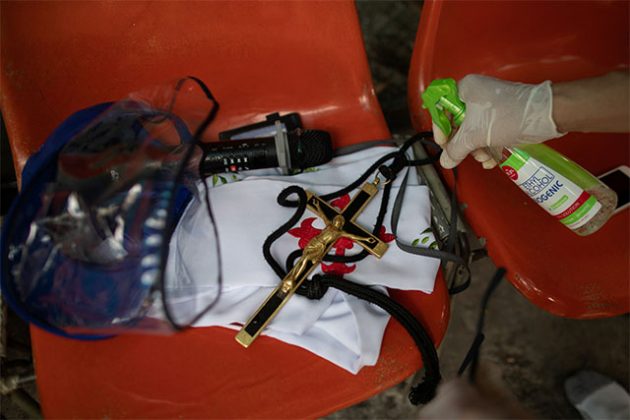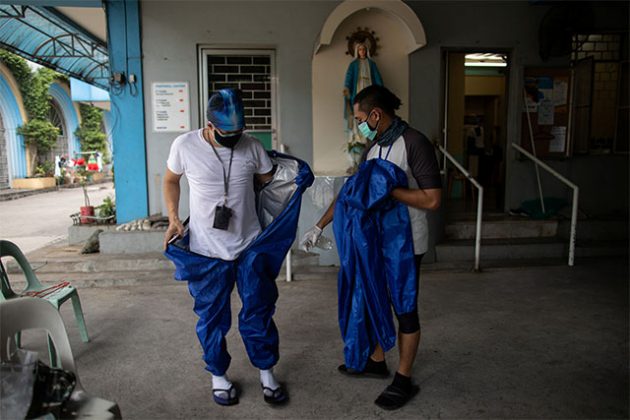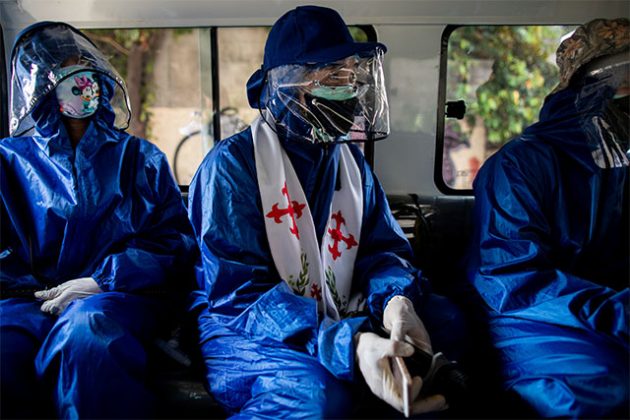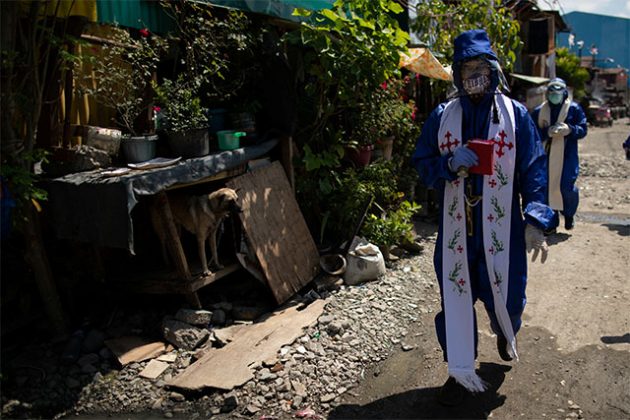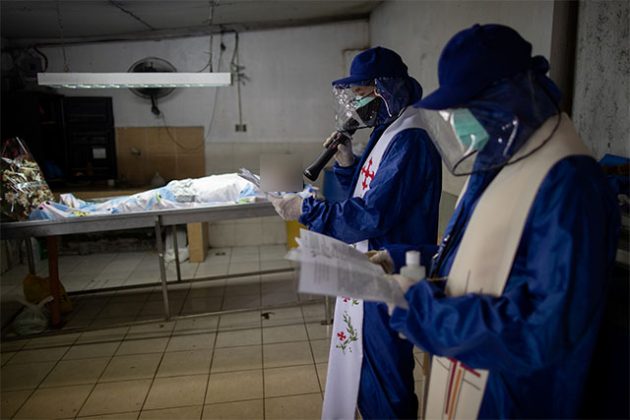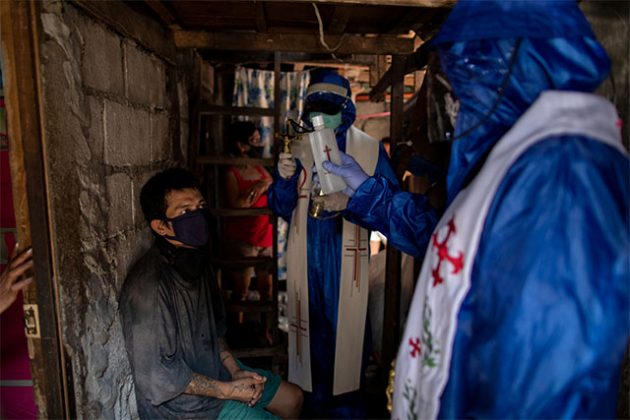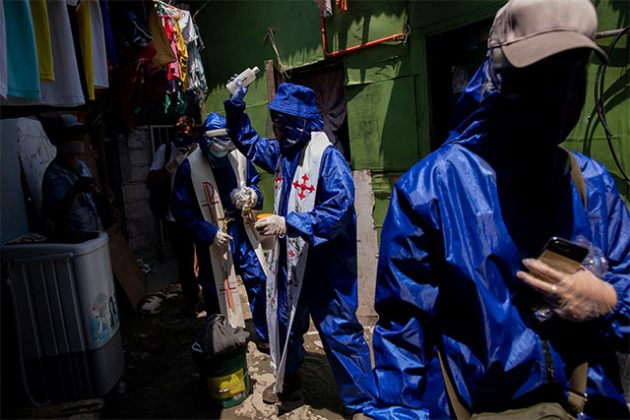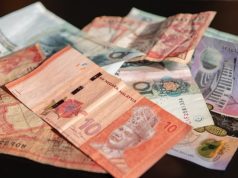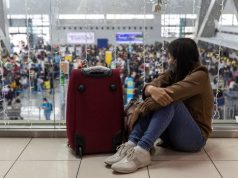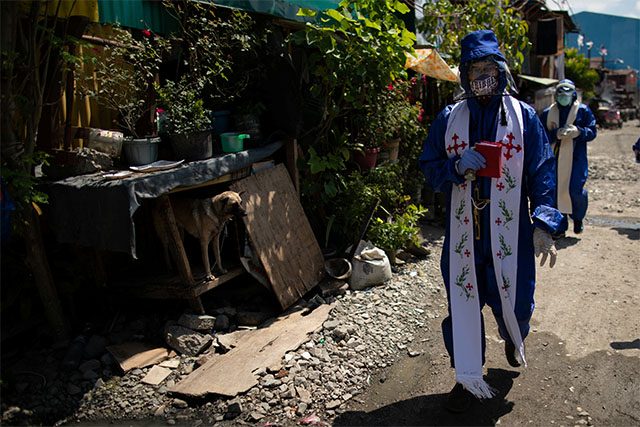
MANILA— Catholic priest Eduardo “Ponpon” Vasquez has worn a hazmat suit more than a vestment this past month.
His parish in the populous Caloocan area of the Philippine capital Manila has been eerily quiet in the six weeks since the government put half of the country’s population on a strict lockdown to try to curb coronavirus infections.
Public gatherings, schools, transport services, and non-essential work has been halted, including that of the church.
Priests in the predominantly Catholic nation have had to be creative in finding ways to keep the faithful engaged.
Most have resorted to streaming online masses while others have set up pews outside churches. Some have printed pictures of parishioners and displayed them inside their closed chapels.
But for Vasquez, the physical presence of the church is more important now than ever.
These days, he wears his stole and oblate cross over a blue hazmat suit with a bottle of Holy Water in one hand and an alcohol spray in the other as he enters some of the poorest areas of his community to bring relief, both literal and spiritual.
“The situation of many Filipinos these days is pitiful. Lockdown is not the same for everyone,” said Vasquez.
“It is easier for the rich who could take this break from work. But for some of the poor, the lockdown is equivalent to death.”
This was almost true for Michael Juarez, 42, a scrap dealer whose cart filled with prized pickings and relief goods was impounded by local officials, who said he was violating rules of the lockdown.
He has since been sleeping outside on a sidewalk, hungry and ashamed of returning home to his family empty handed.
On a recent night when Vasquez and his team were handing out relief goods to the homeless, Juarez became tearful as he told the priest his story.
“More than physical hunger, they have spiritual hunger,” Vasquez said.
“These are the abandoned. The poorest of the poor. They are scared but when they hear that I am a priest, their face lights up as if they have found a friend.”
The relief work varies daily but most depends on requests coursed through a Facebook chat group with community leaders.
The Philippines has recorded over 8,200 confirmed cases of the coronavirus, of which more than 550 have died. Informal workers have no income or savings, and are reliant on handouts.
Many ask for food and face masks. But there are communities who ask only for spiritual blessings — for the dead, for their ashes, for the sick, or even the streets.
To Vasquez, the coronavirus pandemic is more than a fight against a disease.
“It’s a spiritual battle,” he said.
“And we need to hold on to our faith to survive this.” —Reporting by Eloisa Lopez; Editing by Martin Petty and Christian Schmollinger




